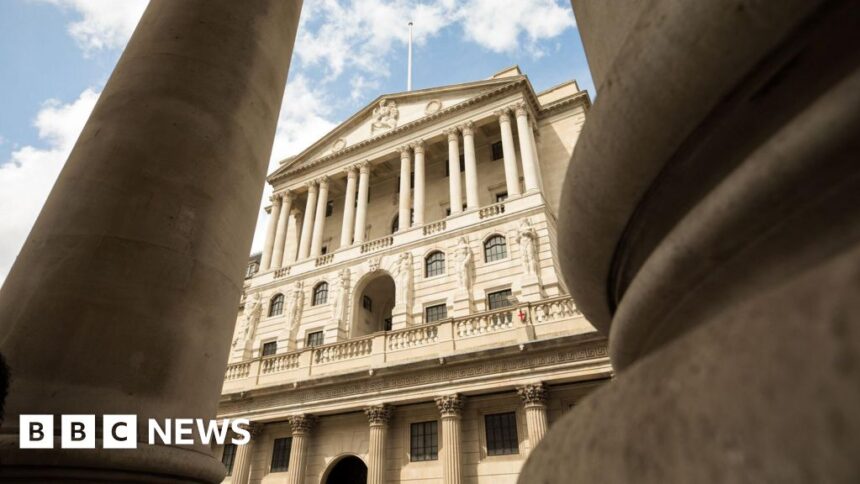Policymakers at the Bank of England are widely expected to maintain interest rates at 4% during their upcoming meeting on Thursday. This decision follows a reduction from 4.25% to 4% made by the Monetary Policy Committee (MPC) in August, marking the lowest rate in over two years. Analysts anticipate that no further cuts will occur for the remainder of the year.
The announcement will take place at 12:00 BST, coinciding with recent official data revealing that inflation is rising at nearly double the Bank’s target level, primarily due to escalating food prices. August’s inflation rate stood at 3.8%, significantly above the desired 2% benchmark. The Bank rate serves as the primary tool for managing inflation; increasing borrowing costs is intended to reduce spending and, in turn, slow price increases. However, hiking rates can also negatively affect economic growth.
The previous decision to lower rates in August resulted from an unprecedented second vote among the nine MPC members. Governor Andrew Bailey characterized the choice to reduce interest rates as “finely balanced.” Analysts project that the upcoming vote will be straightforward, with no alteration in rates anticipated. Given the persistent inflation levels, it is deemed too risky for policymakers to consider lowering the Bank rate further at this time. Nevertheless, there is expectation of a future decrease in the inflation rate, which could allow for interest rate cuts in the coming months.
The Bank rate significantly affects mortgage interest rates, as lenders base their rates on it. Consequently, expectations of rising or falling rates can influence mortgage pricing. Although mortgage rates have slightly declined since the last MPC meeting, future trends remain uncertain. According to Rachel Springall from the financial information service Moneyfacts, many individuals are anxious about the upcoming Budget and believe that ongoing inflation forecasts make further rate cuts this year unlikely. Moreover, she noted a decline in returns for savers amid the Bank’s cuts. The average easy access savings rate has now fallen below 3%, prompting her to advise savers to reassess their variable rate accounts for better returns.
On a broader scale, the government is likely eager to see interest rates decrease to stimulate growth in the economy. The Resolution Foundation, a think tank focused on improving living standards, highlighted the urgent need for progress after what they describe as a “lost” two decades of economic growth for middle and lower-income households. However, ministers must remain aware of the inflationary pressures in the UK, especially in comparison to slower rising prices in countries such as the US, Germany, and France.
This decision from the MPC comes shortly after the US central bank opted to cut interest rates to between 4% and 4.25%, marking its first reduction since December. Meanwhile, just last week, the European Central Bank opted to keep its rate steady at 2%.







